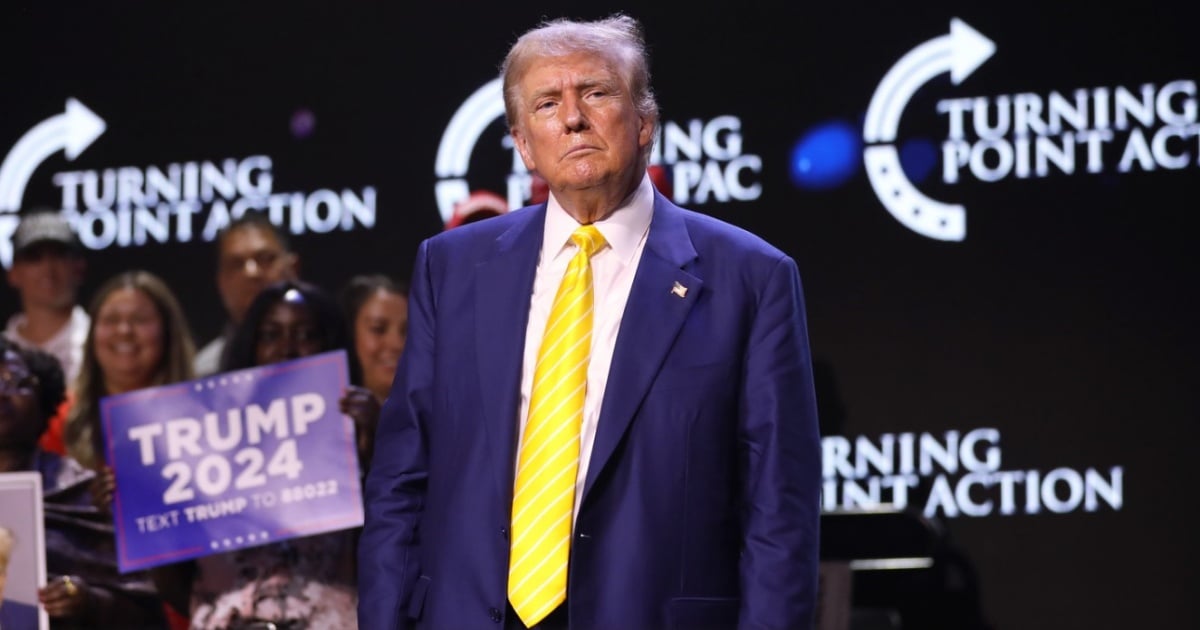Donald Trump, the president-elect of the United States, announced on Saturday that he might impose 100% tariffs on BRICS nations if they take actions to weaken the U.S. dollar. The BRICS alliance consists of Brazil, Russia, India, China, South Africa, Egypt, Ethiopia, Iran, and the United Arab Emirates. In October, they approved the inclusion of 13 new associate members, including Cuba.
Although the dollar continues to dominate global trade, accounting for approximately 58% of foreign exchange reserves according to the International Monetary Fund as reported by Associated Press, the BRICS bloc has been actively working towards reducing its reliance on the dollar through a process known as dedollarization. This strategy aims to increase the use of other currencies in international trade, leveraging the growing economic influence of the group.
In a post on Truth Social this Saturday, Trump declared that the United States demands assurances that BRICS countries will not create a new currency or support alternatives that could replace the dollar. "Otherwise, they will face 100% tariffs and should forget about accessing our wonderful economy," he stated.
Trump insisted there is "no chance" for BRICS to replace the dollar in global trade, warning that any attempt to do so would "close the doors of the United States" to the involved nations. Despite these threats, analysts believe the dollar's leadership is not at risk in the short or medium term. A model from the Atlantic Council confirms that the U.S. currency remains secure as the primary global reserve.
The dominance of the dollar has been criticized by leaders such as Russian President Vladimir Putin, who has labeled the use of the dollar as a sanctioning tool a "strategic mistake." Putin has promoted the development of an alternative payment system to the SWIFT network to evade sanctions and facilitate trade with allies.
Trump's threats follow similar tariff measures announced against Mexico, Canada, and China. In response, leaders like Claudia Sheinbaum and Justin Trudeau have sought negotiations to prevent an escalation of trade tensions.
Understanding BRICS
BRICS is a political and economic association, group, and forum consisting of emerging countries. Initially formed by Brazil, Russia, India, China, and South Africa, it was established in 2010 following South Africa's addition to the then BRIC. Effective January 1, 2024, Egypt, the United Arab Emirates, Ethiopia, and Iran joined as full members after the announcement made at the 15th Summit held in Johannesburg, South Africa, in August 2023.
During the 16th Summit in Kazan, Russia, in October this year, BRICS accepted the inclusion of 13 new associate members, among them Cuba. The other new associates are Algeria, Belarus, Bolivia, Indonesia, Kazakhstan, Malaysia, Nigeria, Thailand, Turkey, Uganda, Uzbekistan, and Vietnam. This expansion has strengthened BRICS as an international alternative to the G7, which consists of developed economies.
Together, BRICS nations account for nearly 37% of global GDP and 46% of the world's population. Despite these impressive figures, the bloc faces internal challenges, including conflicts of interest among its major economies, particularly China, raising questions about its cohesion and economic projection.
FAQs on Trump's Threat to BRICS and Dedollarization
What is dedollarization?
Dedollarization is the process of reducing reliance on the U.S. dollar in international trade and finance, by increasing the use of other currencies.
Why is Trump threatening tariffs on BRICS nations?
Trump is threatening tariffs to deter BRICS countries from actions that might undermine the U.S. dollar, such as creating a new currency that could replace the dollar in global trade.
How significant is the BRICS bloc in the global economy?
BRICS represents about 37% of the world's GDP and 46% of its population, making it a significant force in the global economy.
